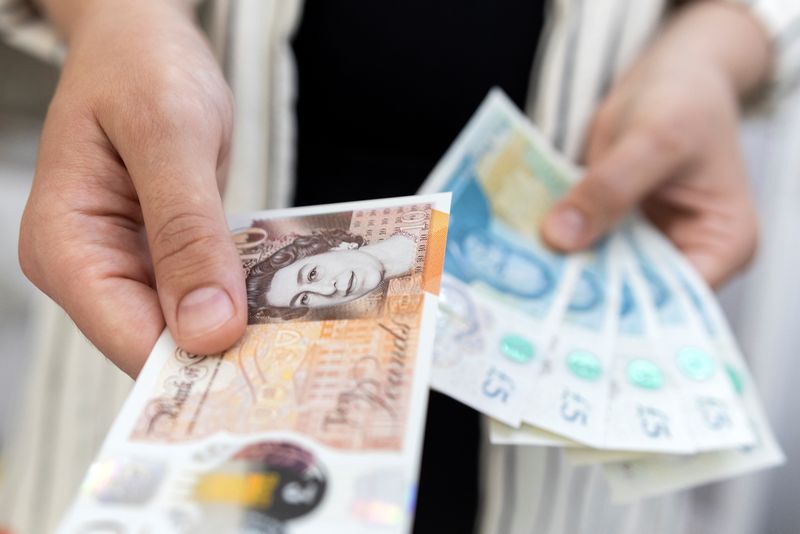By Amanda Cooper
LONDON (Reuters) - The pound headed for a second week of gains on Friday, boosted by the prospect of UK interest rates catching up with U.S. rates, as the Bank of England fights to bring down the highest inflation across leading economies.
Sterling is on track for a weekly rise of 0.7%, on the heels of last week's 0.8% gain. The pound was last down 0.1% against the dollar at $1.2541 and flat against the euro at 85.89 pence.
Earlier this week the Organisation for Economic Co-Operation and Development said headline inflation in Britain will be at 6.9% by the end of this year, compared with an OECD average of 6.6%. This would leave UK inflation above that of Turkey and Argentina.
Inflation peaked at a four-decade high of 11.% in October and has since retreated to 8.7%, but this is still over four times the BoE's target of 2%.
As other central banks reach the end of their respective monetary policy cycles, the expectation is the BoE still has further to go in raising interest rates, which could tilt the economy into a recession that it has so far avoided.
While this might be unwelcome news for bond or equity investors, it is theoretically supportive of the pound.
"Sticky inflation raises the prospect of more interest rate hikes from the BoE, in contrast to the Federal Reserve, which is widely expected to pause interest rate hikes in June with another possible rate hike in July," City Index strategist Fiona Cincotta said.
Money markets are currently pricing in a peak of 5.5% for UK rates, up from 4.5% right now.
U.S. rates, by contrast, are at 5.25%, which traders roughly believe is at, or close to, the peak. Another 100 basis points in rises from the BoE would erode the appeal of the dollar among yield-hungry investors.
Against the euro, however, the picture is less bullish for the pound, according to ING strategists.

"We remain of the view that EUR/GBP will increasingly struggle to find more bearish momentum now that markets are already pricing in 100 bps of Bank of England tightening and the pair is already in undervaluation territory," Francesco Pesole wrote in a daily note.
The euro has fallen by around 4.5% against the pound in the last four months and is trading around its lowest since mid-December.